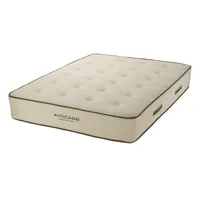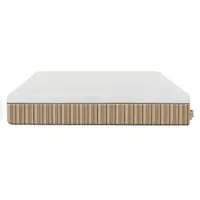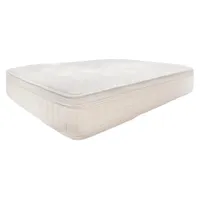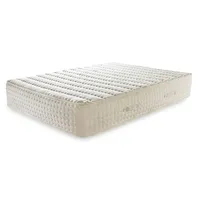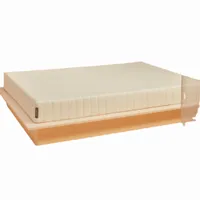What is GOTS certification and why does it matter when you’re buying a mattress?
Here's what the Global Organic Textile Standard certification means for your mattress
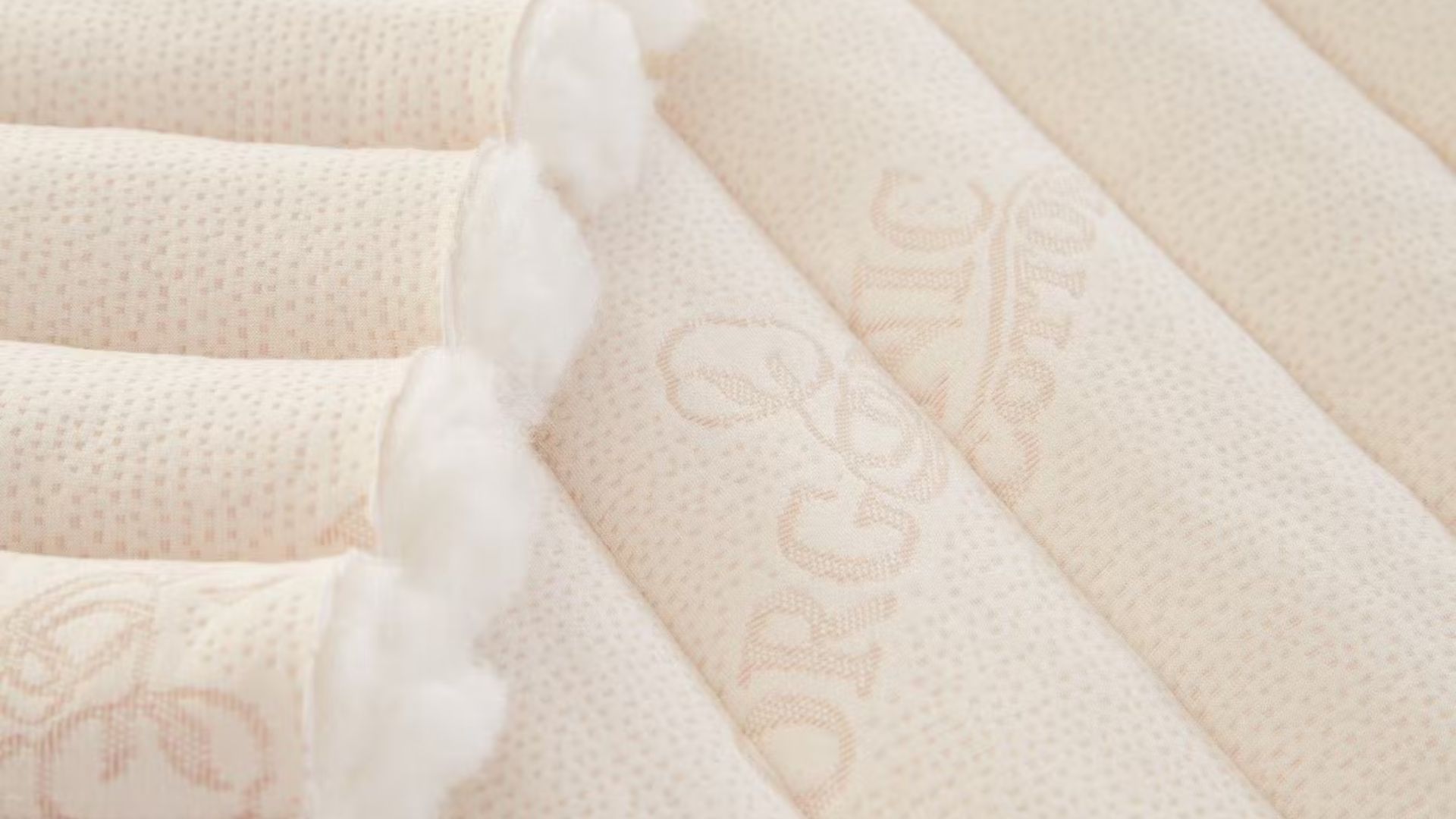
Here at Tom’s Guide our expert editors are committed to bringing you the best news, reviews and guides to help you stay informed and ahead of the curve!
You are now subscribed
Your newsletter sign-up was successful
Want to add more newsletters?

Daily (Mon-Sun)
Tom's Guide Daily
Sign up to get the latest updates on all of your favorite content! From cutting-edge tech news and the hottest streaming buzz to unbeatable deals on the best products and in-depth reviews, we’ve got you covered.

Weekly on Thursday
Tom's AI Guide
Be AI savvy with your weekly newsletter summing up all the biggest AI news you need to know. Plus, analysis from our AI editor and tips on how to use the latest AI tools!

Weekly on Friday
Tom's iGuide
Unlock the vast world of Apple news straight to your inbox. With coverage on everything from exciting product launches to essential software updates, this is your go-to source for the latest updates on all the best Apple content.

Weekly on Monday
Tom's Streaming Guide
Our weekly newsletter is expertly crafted to immerse you in the world of streaming. Stay updated on the latest releases and our top recommendations across your favorite streaming platforms.
Join the club
Get full access to premium articles, exclusive features and a growing list of member rewards.
If you've been shopping for one of this year's best organic mattresses for clean, comfortable sleep, you might have noticed a logo of a white T-shirt in a green circle — but what does it mean, and how is it related to mattresses?
That symbol represents the Global Organic Textile Standard (GOTS), long considered the gold standard in organic textile certification. There are two levels: Organic (at least 95% certified organic natural fibers) and Made With Organic (at least 70% certified organic fibers).
GOTS ensures the use of organic materials that are free from harmful chemicals. This mattress certification encompasses the entire process, from the farming and harvesting of raw fibers to the final manufacturing stages. Accredited, independent third-party certification bodies conduct on-site audits.
But how does a mattress earn GOTS certification — and how can shoppers be confident that a brand’s claims are legitimate? After testing the best mattresses of the year, we've learned how to spot these certifications. But for answers to those questions and more, we've also spoken with representatives from GOTS North America and brands that sell GOTS-certified mattresses.
The main benefits of GOTS certification:
- It offers a transparent chain of custody and guarantees the materials in your mattress are organic and toxin-free
- It assures you that the laborers involved in harvesting materials have been paid a fair wage and work in humane conditions
- It's proof that the manufacturing process for making those materials is safe for the environment
How does GOTS certification work?
"The Global Organic Textile Standard (GOTS) includes a whole set of requirements for manufacturing what would eventually become a finished textile product, but all of the supply chain goes through the same audit," explains Ryan Sitler, GOTS Representative in North America.
The Global Organic Textile Standard (GOTS) is a set of environmental and labor requirements that govern the manufacture of a textile product. Development for this standard began in 2002, and since 2008 it's been managed by a German non-profit called Global Standard.
It starts with the origin of the materials. For a product to receive GOTS certification, the fibers must be grown without pesticides, herbicides, or genetically modified organisms (GMOs).
A clear chain of custody must be maintained, with detailed, traceable records from the harvesting of raw materials to the final product.
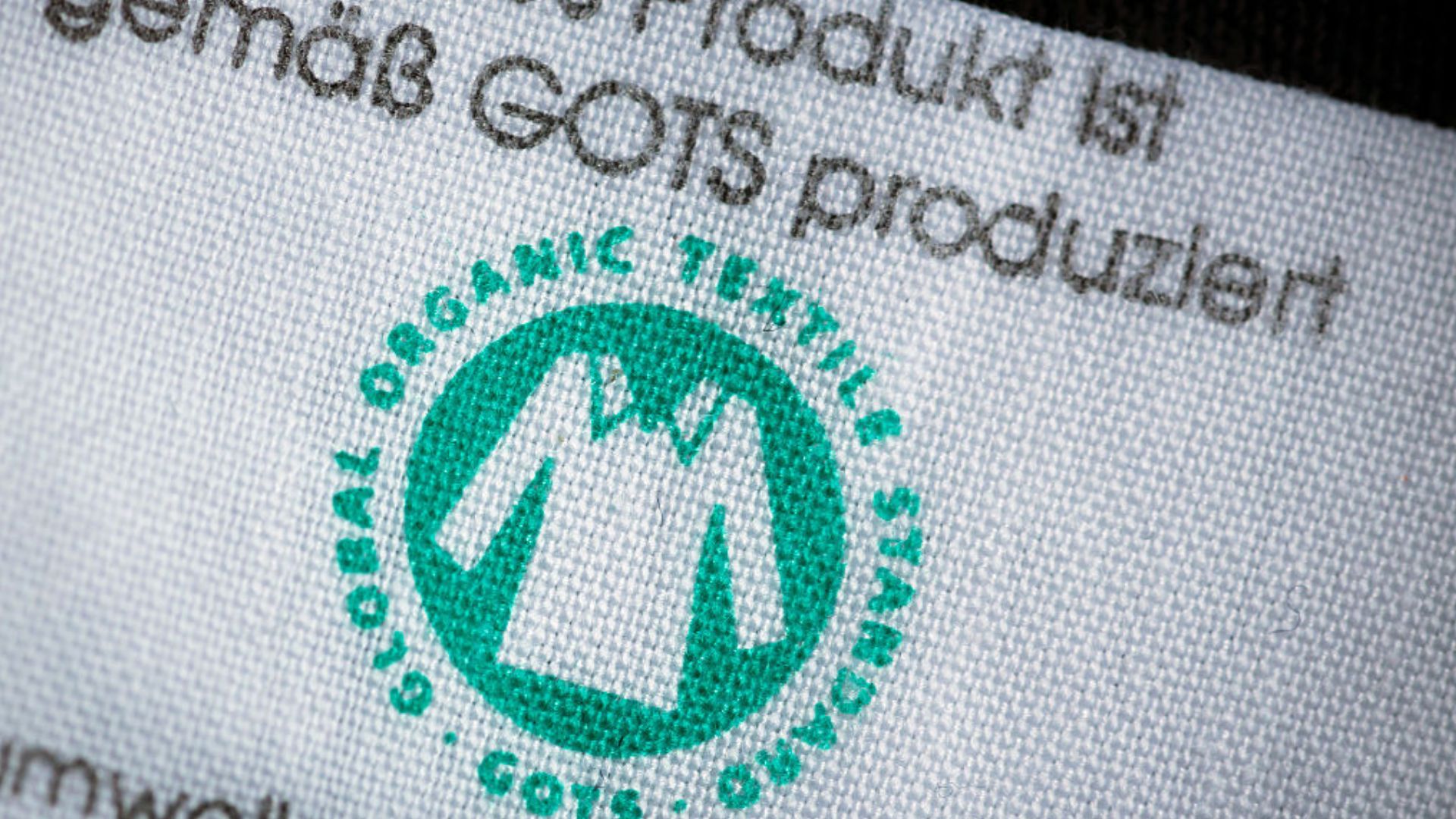
Strict processing standards are enforced to protect the health and safety of factory workers, consumers and the environment. GOTS prohibits the use of "forever chemicals" (PFAS), heavy metals, toxic dyes and other substances known to pose risks to human health or the environment.
Social responsibility is another pillar of GOTS. "There are a lot of worker welfare requirements — [fair] pay, worker training, worker health and safety, protection from harassment and discrimination. Those are very important components written into the Standard," says Sitler.
OEKO-TEX Standard 100 is a similar certification that tests for over 1,000 harmful substances and supports sustainable, regenerative farming.
How does a mattress become GOTS-certified?
For a mattress manufacturer seeking GOTS certification, the process usually starts by submitting an application detailing the production methods and the finished products to be considered.
From there, the manufacturer must establish a quality management system, implement supplier approval programs, and gather the necessary documents to show GOTS compliance.
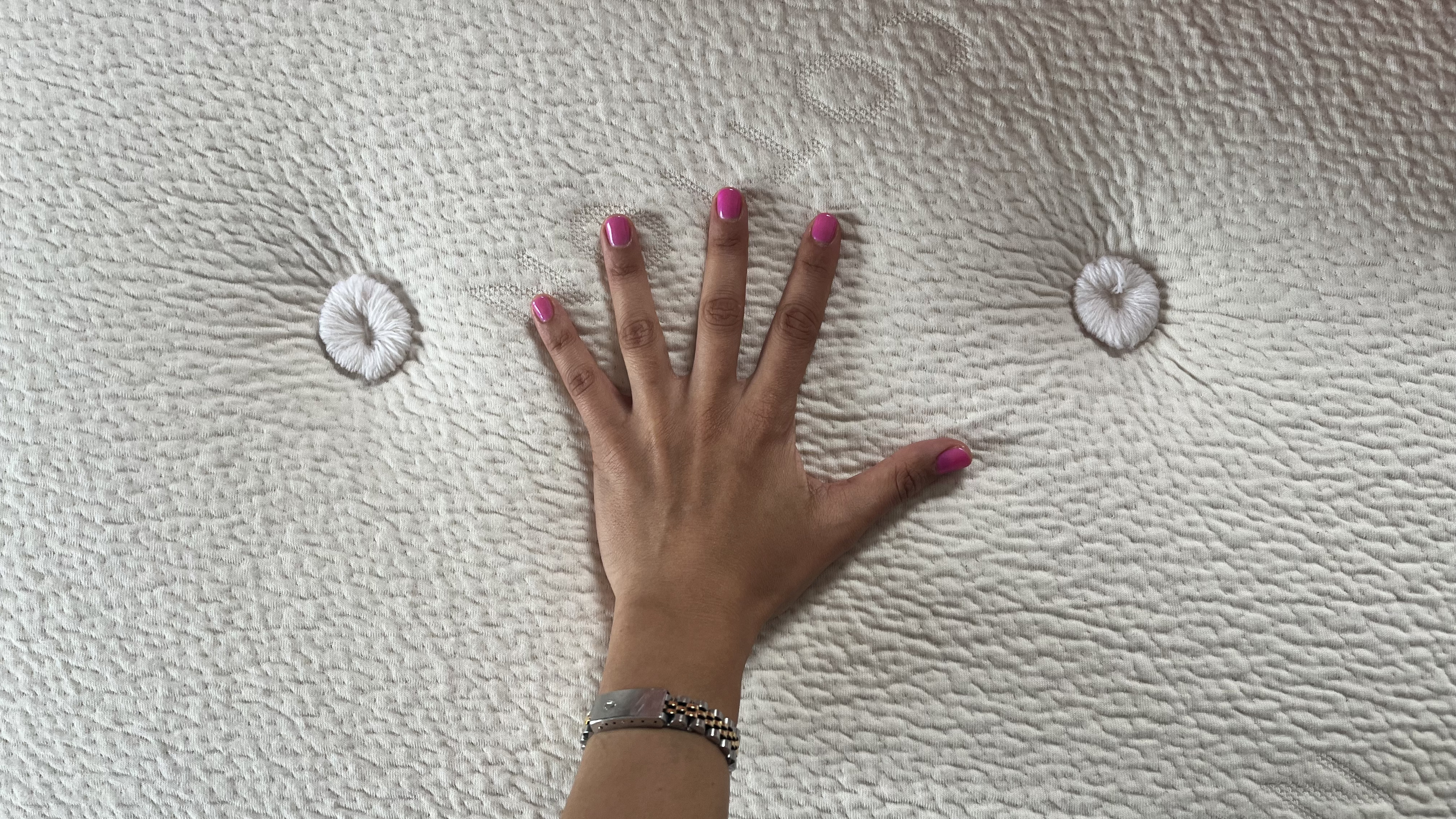
An accredited third-party Certification Body will work closely with the manufacturer to ensure a clear understanding of the standard and to review the records needed for certification.
Once GOTS certification is granted, there will be a yearly audit that includes interviewing workers, reviewing manufacturing records and inspecting the use of GOTS claims and labels on the company's website, packaging, and marketing materials.
Does GOTS certification really matter?
Sleep brands and consumers view GOTS as a gold standard in organic textile certification because it considers the whole supply chain.
There's just as much of an emphasis on worker safety and environmental impact as there is on the finished product.
"Our written requirements include both worker protection and environmental protection requirements, as well as improving the livelihood of workers, and even going to the extent of improving environmental conditions in and around where the workers live," says Sitler.
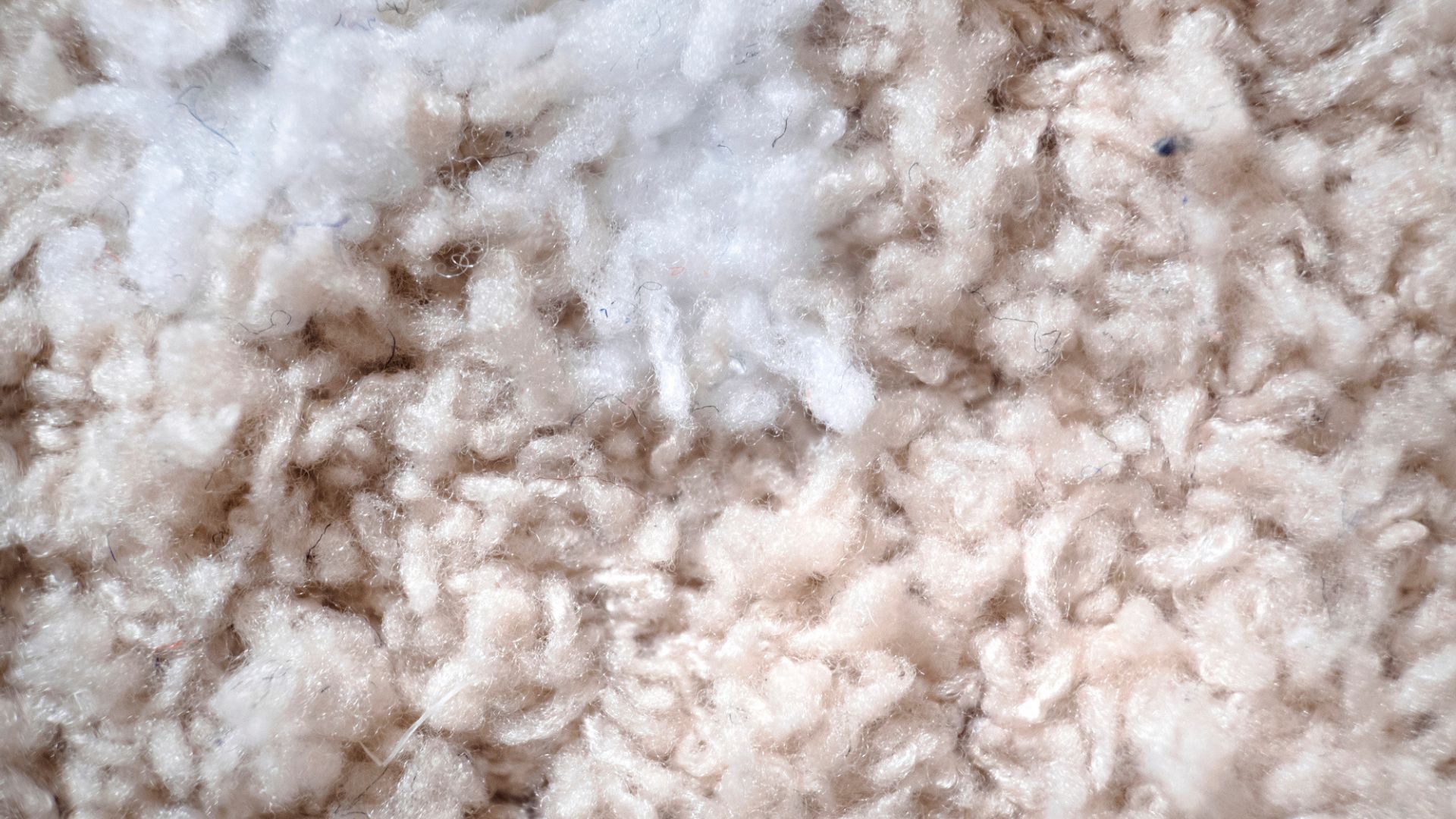
Stringent chemical requirements are another reason why GOTS certification is held in high regard by those who prioritize organic goods for their sleep, be it mattresses, pillows, sheets or pajamas. GOTS revises its criteria every three years to incorporate new research and emerging best practices.
Leaders in the organic mattress industry take GOTS compliance seriously, and consider it both a responsibility and a point of pride.
"GOTS certification holds us accountable to the highest level of environmental and social responsibility, not just for the materials themselves, but for how they’re processed and handled," says Mark Abrials, Chief Marketing & Sustainability Officer at Avocado Green.
Businesses that are GOTS-certified are very proud of what they're doing. Part of that is their willingness to help educate and share their story.
Ryan Sitler
Karl Shevick, Founder and CEO of Earthfoam, says GOTS aligns with his company's mission of sustainability and transparency. "It reinforces our commitment to high environmental and ethical standards, and shows our customers that we take this commitment seriously," he adds.
"GOTS certification gave us a real framework that aligned with our values. It’s not just about being organic, it’s about being responsible at every level," says Jack Dell'Accio, CEO of Essentia Mattress.
Which mattresses are GOTS certified?
The best way to know if a mattress is legitimately certified is to search for it in the GOTS Certified Suppliers Database. You can search by license number (if known), product category, or company name.
Sitler says shoppers should look for four components: the T-shirt logo with "Global Organic Textile Standard" around the outside, the label, the grade, and the license number. If a brand website only has the GOTS logo and no other information, that's often not a good sign. Below are some of the GOTS certified mattresses we've tested and recommend.
1. Avocado Green Mattress: usually priced from $1,399 at Avocado Green
Avocado Green's flagship hybrid mattress includes GOTS-certified organic wool and cotton. The entire finished mattress is certified to the GOTS standard, with the wool coming from Gaddi sheep in northern India and the cotton sourced from a farm in India. Avocado even has a GOTS-certified factory in Los Angeles where they can sell certified finished products under their brand name.
Read more: Avocado Green Mattress review
2. Essentia Stratami Mattress: usually priced from $2,915 at Essentia
The Essentia Stratami is a full organic latex mattress — there are no synthetic foams or springs to be found. The top cover is made of GOTS-certified organic cotton. Essentia also holds a GOTS 4.0 factory certification, ensuring it follows strict procedures to keep materials clean and traceable and maintaining detailed records throughout the production process.
Read more: Essentia Stratami Mattress review
3. Naturepedic Concerto Pillow Top Mattress: usually priced from $1,699 at Naturepedic
Naturepedic manufactures all of its mattresses in its Ohio-based, GOTS-certified factory. The Naturepedic Concerto uses US-grown and certified organic cotton plus organic wool from farms that practice sustainable land management and mind the welfare of animals.
Read more: Naturepedic Concerto Pillow Top Mattress review
4. PlushBeds Botanical Bliss Mattress: usually priced from $2,849 at PlushBeds
This all-natural organic latex bed uses GOTS-certified wool and cotton in its top layers. The wool comes from Standard Wool in the UK, while the cotton is sourced from farms that don't use pesticides, herbicides, or harmful chemicals. PlushBeds' California-based factory is also GOTS-certified.
Read more: PlushBeds Botanical Bliss Mattress review
5. Earthfoam Organic Mattress: usually priced from $799 at Earthfoam
This is Earthfoam's one-and-only mattress, an organic latex bed with GOTS-certified organic cotton and wool. The cotton comes from farms in India and Turkey that don't use pesticides or organic fertilizers; it's then processed at certified organic factories in Canada, Germany, and Pakistan. The wool is sourced directly from a farmer-owned cooperative in New Zealand.
Are GOTS certified mattresses more expensive?
Many of the best mattresses we've tested this year incorporate GOTS-certified materials. For a queen-size GOTS-certified mattress, you'll be paying around $2,400 on average. Compare that to the average price of the best mattresses we've tried that are non-GOTS certified, which is around $1,600 for a queen.
GOTS-certified mattresses such as Avocado Green, PlushBeds Botanical Bliss, and Essentia Stratami all exceed $1,600, even when they're on sale. Popular non-GOTS certified mattresses-in-a-box from brands like Purple, Nectar, and WinkBed will run between $1,300 and $1,500 on sale, with budget models from DreamCloud and Siena available for even less.
When you buy a GOTS-certified organic mattress, you're not only paying for the quality of the end product — you're also paying for what goes into creating it.
When you buy a GOTS-certified organic mattress, you're not only paying for the quality of the end product — you're also paying for what goes into creating it.
Organic materials, such as cotton and wool, tend to cost more to grow and harvest. Processing methods that meet ecological and toxicological standards for GOTS are often more expensive than conventional manufacturing. Operating a transparent supply chain and paying fair wages to workers add to production costs, as well.
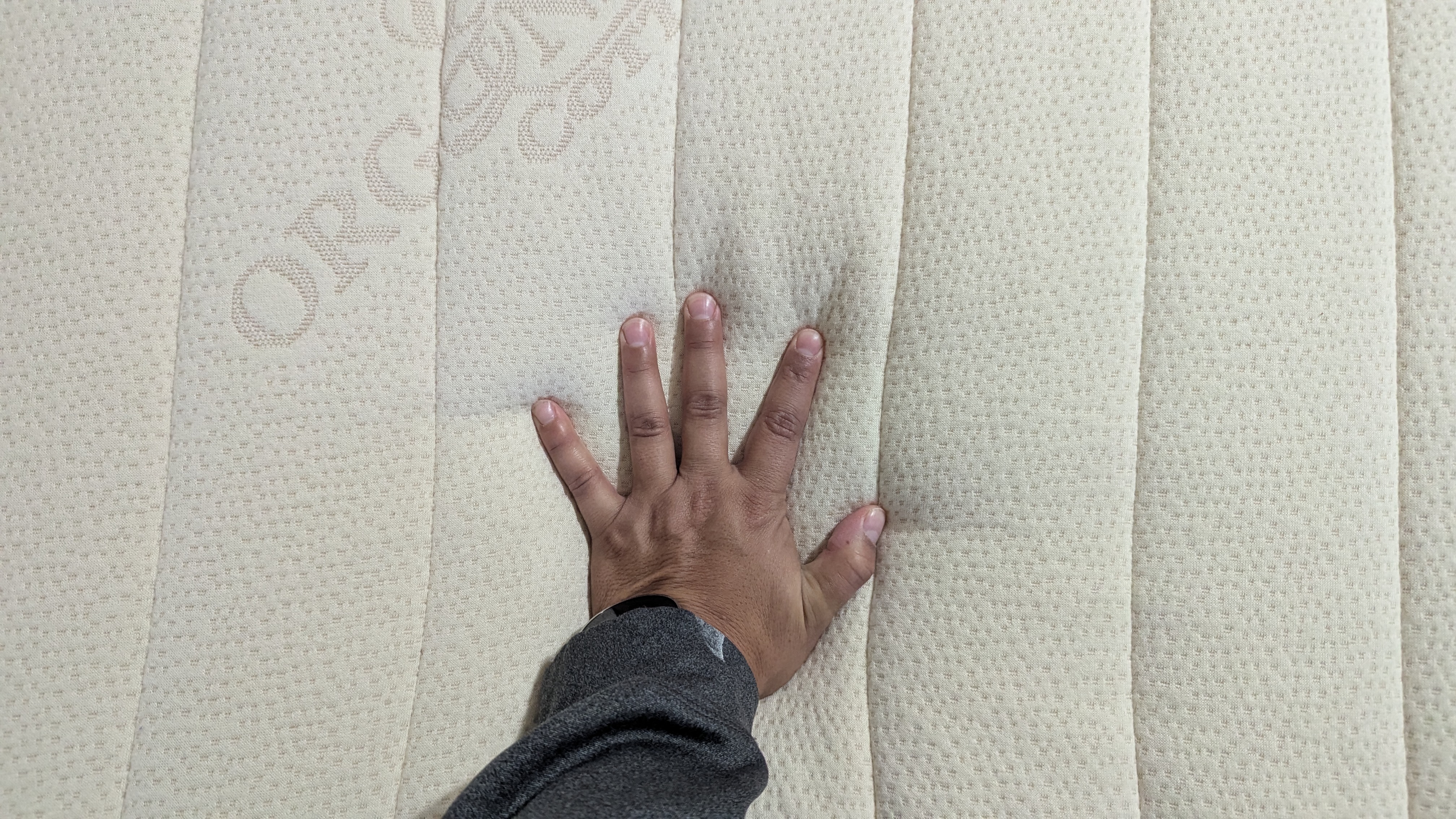
"At Avocado, our level of craftsmanship, comfort, and durability comes at a cost, but it reflects the values we put into every mattress we make. For people who want something they can truly feel good about, and sleep better on, we believe it’s 100% worth it," says Abrials, a Co-Founder of Avocado Green.
Others, like Shevick of Earthfoam, have a different philosophy. Earthfoam's GOTS-certified mattress sells for $1,299, which is less than even the average cost of non-GOTS certified mattresses.
"Keeping prices accessible is core to our business and comes down to controlling our supply chain," says Shevick.
"Because we own our production facilities, we eliminate middlemen and reduce overhead costs. This lets us maintain exceptional quality without inflating prices."
It remains to be seen what impact the impending tariffs on imports in the US could have on the price of organic mattresses in general, as a lot of these brands source their materials from farms and facilities overseas.

GOTS certification for mattresses: The bottom line
GOTS certification matters when shopping for mattresses — or any textile product — because it offers full transparency on where and how materials are sourced while incorporating practices that help preserve the environment and benefit workers' livelihoods.
For people who want a toxin-free mattress, buying GOTS-certified is reassuring. The standard maintains a strict set of criteria to ensure that the fibers are purely organic, without additives or chemicals that pose a threat to human health. Plus, these criteria are revised every three years. Because even this year's best memory foam mattresses that we've tested include man-made chemicals which can result in off-gassing.
You'll often have to pay more for a GOTS-certified mattress as the price reflects the costs of implementing practices and machinery compliant with the standard, which are usually more expensive than traditional manufacturing and sourcing methods.
That said, the investment in GOTS-certified organic is worth it if you want to do your part to help the global community and the environment. It's also worth noting that these natural materials are often very breathable and moisture wicking, and many of this year's best cooling mattresses that we've tested incorporate wool and cotton for their cooling properties. So, if you do sleep hot or experience night sweats or hot flashes, considering a GOTS-certified mattress is a good idea.
"Businesses that are GOTS-certified are very proud of what they're doing. Part of that is their willingness to help educate and share their story. GOTS-certified businesses are excellent companies that are proud to share and communicate with their customers," says Sitler.
To learn more about the Global Organic Textile Standard, visit GOTS: Behind the Seams.

Based in Philadelphia, writer and editor Alison Barretta has been sharing buying advice and retail news for over 15 years. Since 2020 she's been helping Tom's Guide expand its robust library of sleep content by researching the latest trends, speaking with renowned experts, and going behind the scenes at Saatva, Casper, Sleep Number, Tempur-Pedic, and 3Z Brands. Alison has reviewed everything from budget mattresses to immersive luxury smart beds that automatically adjust to your every move. When she isn't reviewing mattresses or searching for great deals to save you money, Alison can be found practicing yoga and martial arts, experimenting with recipes, getting too invested in the Philadelphia Flyers, and snoozing with her cat / assistant mattress tester Alex.
You must confirm your public display name before commenting
Please logout and then login again, you will then be prompted to enter your display name.
 Club Benefits
Club Benefits





